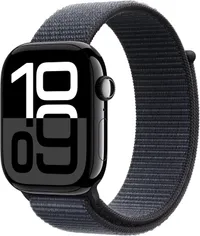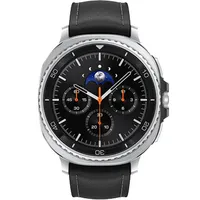I walked 5,000 steps with the Apple Watch 10 vs Samsung Galaxy Watch 8 — there’s a clear winner
Apple vs Samsung: Which is the better fitness tracker?
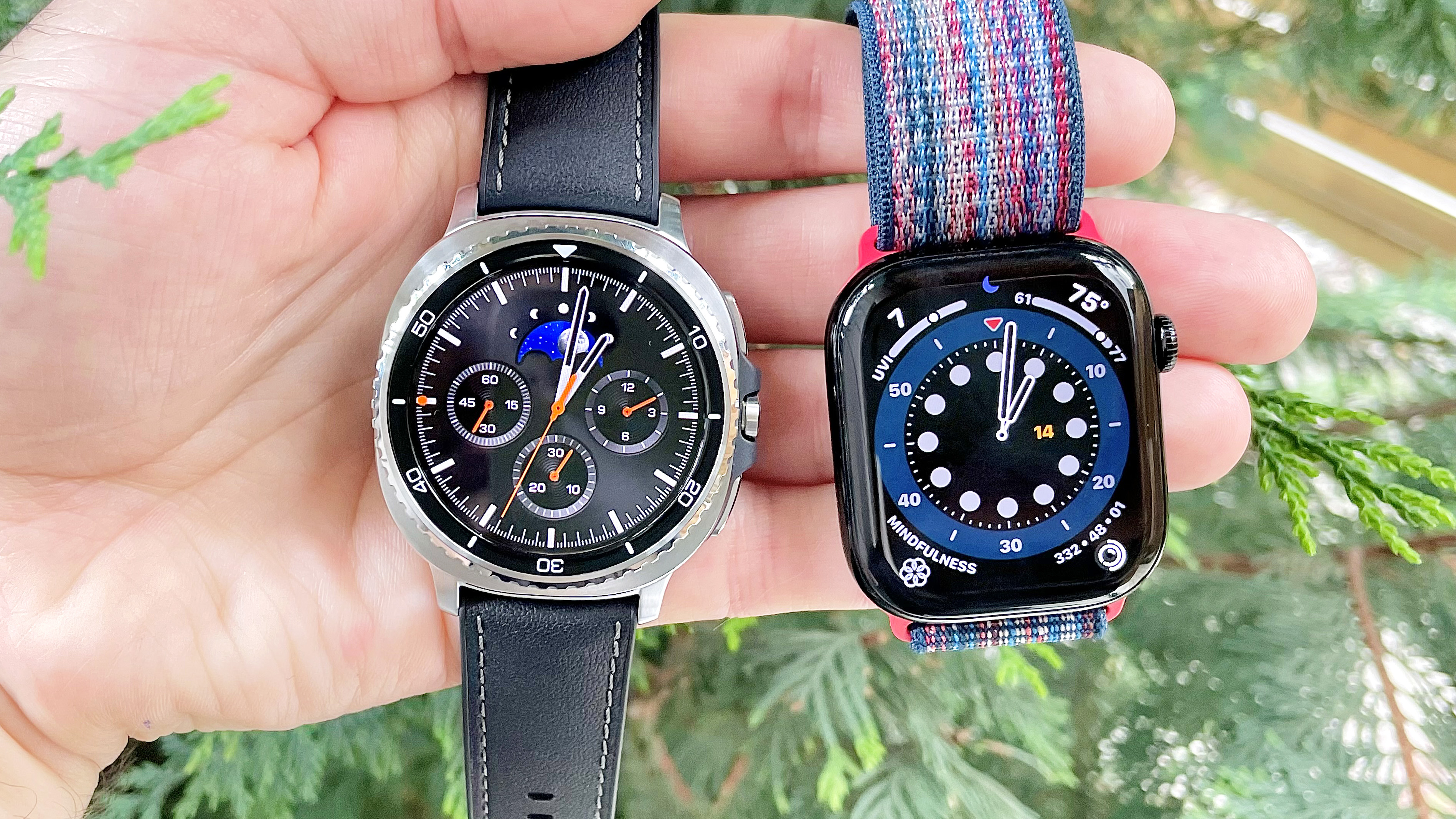
Here at Tom’s Guide our expert editors are committed to bringing you the best news, reviews and guides to help you stay informed and ahead of the curve!
You are now subscribed
Your newsletter sign-up was successful
Want to add more newsletters?
Join the club
Get full access to premium articles, exclusive features and a growing list of member rewards.
I just walked 5,000 steps with the new Galaxy Watch 8 Classic on my left wrist and the Apple Watch Series 10 on my right wrist to find out which flagship smartwatch is the more accurate fitness tracker.
In addition to manually counting my steps during the walk as a control, I ran Strava on my smartphone for distance, climb and pace data. So, which device was produced the cleanest, most precise data in this showdown of the Apple Watch Series 10 versus Samsung Galaxy Watch 8 Classic? Read on.
Apple Watch 10 vs Samsung Galaxy Watch 8 compared
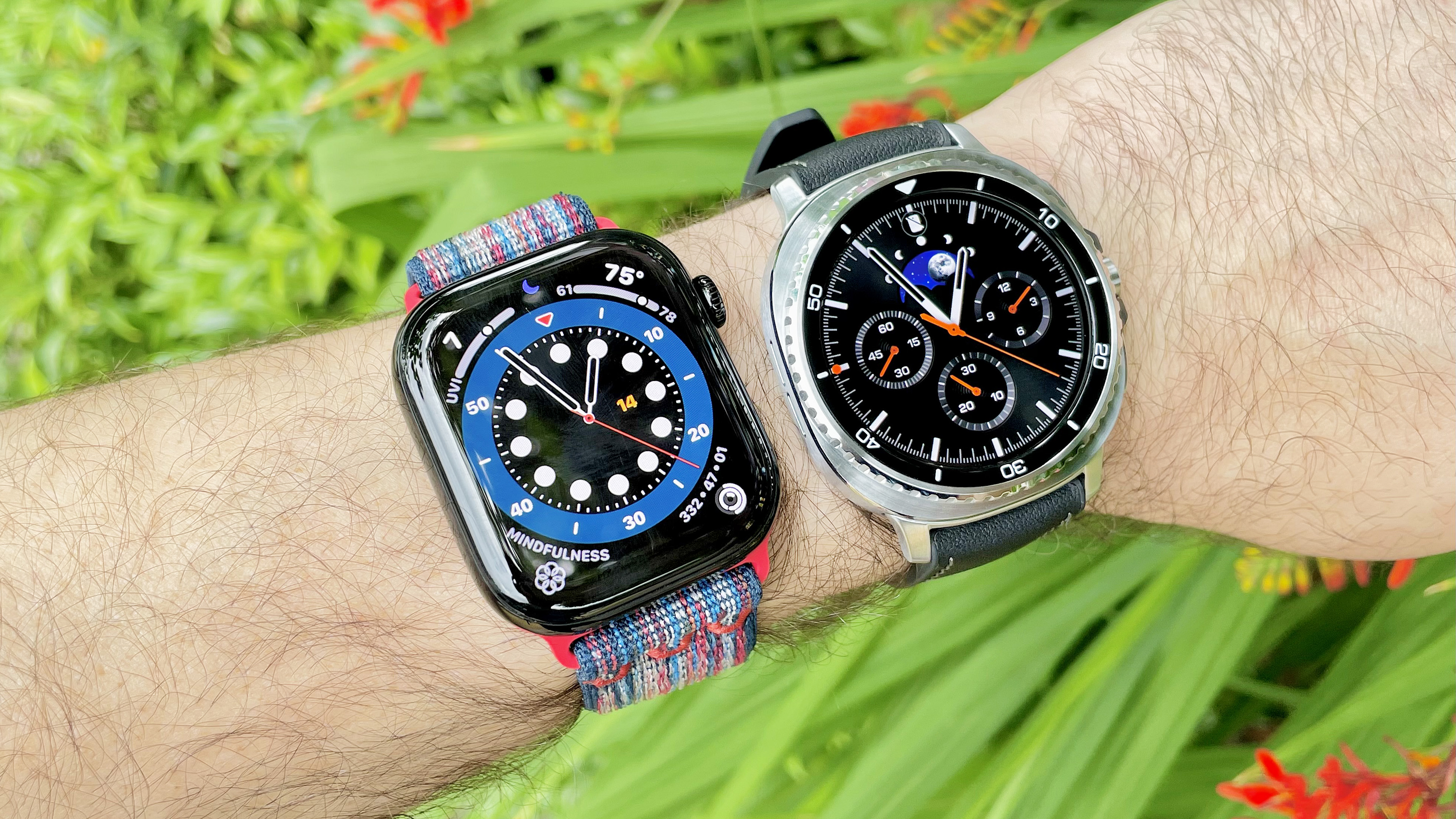
But first, how do these two top-tier wearables compare? The Apple Watch Series 10 arrived in fall 2024, boasting an updated case design with a thinner and lighter profile, updated touchscreen, and faster charging.
The Samsung Galaxy Watch 8 Classic was just announced in early July 2025 as the higher-end option in the Galaxy Watch 8 lineup. Samsung's newest watch offerings also feature standard models, without the Classic's rotating bezel, for less cash.
The latest Galaxy Watches also got a case redesign, moving away from the familiar circular face that has long been associated with the line and instead embracing the "cushion" case introduced with the Galaxy Watch Ultra last summer 2024.
The Series 10 is the latest Apple Watch release. It boasts a slender and lightweight case that makes it easier to wear than the Galaxy Watch 8 Classic. The Series 10 also sports a large touchscreen designed for easy viewing even at extreme angles, useful smart and safety features, and handy wellness tools.
The Galaxy Watch 8 Classic is available for preorder now, with units expected to ship to customers by the last week of July. Costing $100 more than the Apple Watch 10, the Watch 8 Classic sports a unique rotating bezel and a customizable Action button. It also offers top-notch holistic, fitness and smart features.
Like the Apple Watch Series 10, the Galaxy Watch 8 is jam-packed with smart features, safety tools, and holistic-focused applications. In fact, the new Samsung watch offers several promising wellness tools absent on the Series 10, including Vascular Load monitoring, Antioxidant Index testing, and a daily Energy Score out of 100 based on sleep quality and recent physical activity.
That said, when it comes to tracking basic outdoor workouts, like walks, runs, hikes, and bike rides, both devices provide similar sets of post-effort metrics. They each also offer built-in GPS for pinpoint location data, onboard altimeters for precise elevation, and optical pulse sensors for continuous heart rate monitoring.
Get instant access to breaking news, the hottest reviews, great deals and helpful tips.
The Series 10 has already proven to be a worthy competitor in prior walk tests and a reliable fitness wearable, both in head-to-head comparison and daily field testing, one of the main reasons it's our best smartwatch pick for 2025. So can the latest Galaxy Watch 8 Classic compete?
Apple Watch 10 vs Samsung Galaxy Watch 8: Walk test
To test the tracking accuracy of the latest devices, one goes on either wrist, the fitness tracking modes get fired up — along with Strava on my iPhone — and I set out on my merry way, counting each step.
To make things a tad easier, I use an old-school tally counter to note every 100 steps taken. So, really, I'm just counting to one hundred 50 times over. By the seventh or eighth time you do it, the process becomes rather easy. Of course, a pair of the best noise-cancelling headphones helps.
Find the results of the Samsung Galaxy Watch 8 Classic versus Apple Watch Series 10 walk test below.
Apple Watch 10 vs Samsung Galaxy Watch 8: Results
| Header Cell - Column 0 | Apple Watch 10 | Samsung Galaxy Watch 8 Classic | Control |
|---|---|---|---|
Step count | 5,083 steps | 5,223 steps | 5,000 steps (manual count) |
Distance | 2.76 miles | 2.78 miles | 2.74 miles (Strava) |
Elevation gain | 366 feet | 387 feet | 370 feet (Strava) |
Average pace | 17 mins 23 secs per mile | 17 mins 06 secs per mile | 16 mins 59 secs per mile (Strava) |
Average heart rate | 124 bpm | 126 bpm | n/a |
Max heart rate | 168 bpm | 158 bpm | n/a |
Total calories burned | 409 calories | 333 calories | n/a |
Device battery usage | 7% | 9% | n/a |
The Galaxy Watch 8 Classic added 223 steps on to my 5,000 step total, compared to the Apple Watch Series 10 adding just 83 extra steps. Strava did even worse, with a total of 5,272 steps, or 272 more than my actual count.
Distance data, however, lines up much more nicely. The same goes for elevation data. Living in Seattle, Washington, a rather hilly city, I'm a stickler for accurate climb tallies — I care about it more than distance — so it pleases me to see similar totals from these high-end wearables (and Strava).
All three methods also record similar average paces for my walk, with Strava having me move just a bit faster than Samsung and Apple. That said, Strava provides two average pace metrics: average moving pace, shown above, and average "elapsed" or total pace, which is 17 minutes and 32 seconds.
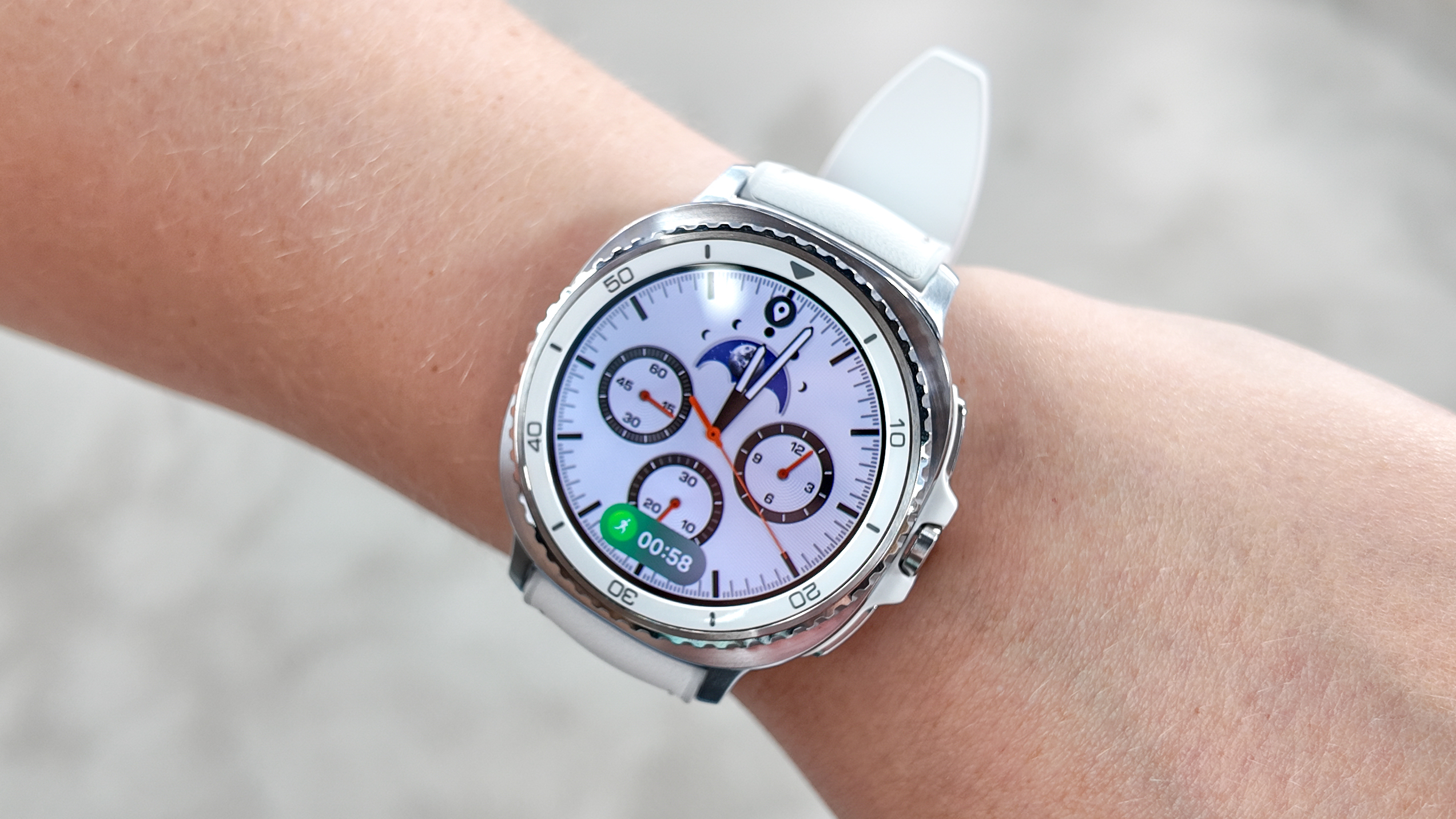
The latest Samsung models are billed as offering improved heart rate accuracy thanks to the new Dynamic Lug System, which more firmly presses the sensors to your wrist. However, from these results, it's difficult to say whether the new strap system worked as advertised.
Both smartwatches calculated similar enough average heart rates, but the Apple Watch noted a higher max. Which is right? Based on my most recent walk tests along similar routes, I can't say for certain.
When I tested the Apple Watch 10 vs. Garmin Forerunner 570, my max heart rate was 163 bpm and 164 bpm, respectively, but when I pitted the Apple Watch Ultra 2 vs. Garmin Venu X1, I had a max heart rate of 158 bpm and 159 bpm. Finally, when I walked 6,500 steps with the Pixel Watch 3 vs. Fitbit Charge 6, both measured my max heart rate at 164 bpm.
Apple noted more calories burned than Samsung, though this is a metric I tend to ignore (and encourage others to as well), as results between devices vary tremendously based on my extensive testing. Finally, the Galaxy Watch 8 Classic burned a little more battery during my roughly 45-minute walk compared to the Apple Watch Series 10.
Apple Watch 10 vs Samsung Galaxy Watch 8: Winner
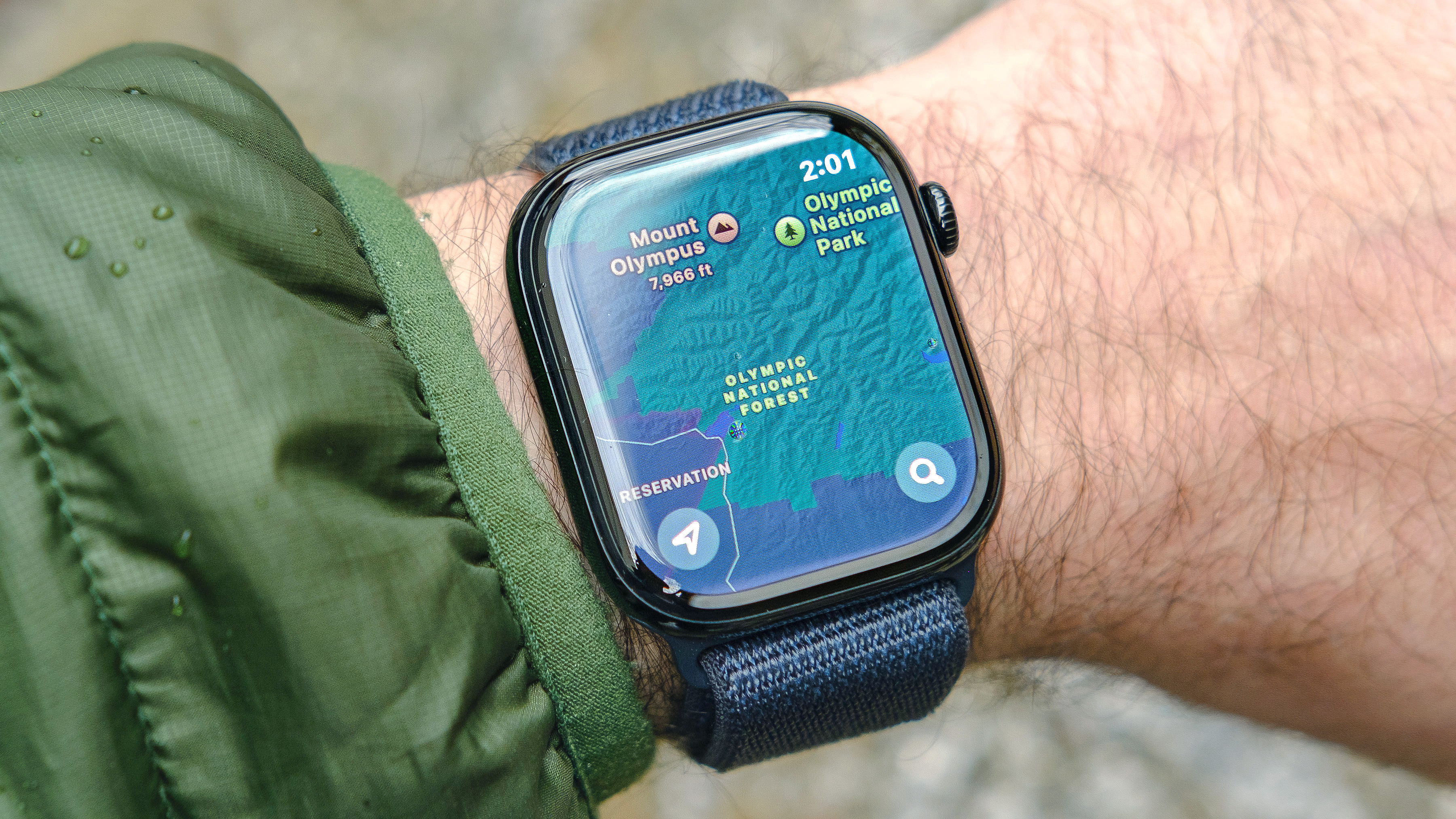
And the winner is... the Apple Watch Series 10. While both devices produced step-count totals that are well within a reasonable margin for error, the Apple Watch's results were much closer to my actual total than Samsung's.
That said, across the board, the latest Apple Watch and Samsung Galaxy Watch performed admirably, churning out metrics that not only largely lineup with one another but also with Strava's data.
Which devices should I test head-to-head next? Let me know in the comments below.
More from Tom's Guide
- Samsung Galaxy Z Fold 7 review: The first foldable I'd actually buy
- I walked 6,500 steps with the Fitbit Charge 6 vs Pixel Watch 3 — and I’m surprised by the winner
- I test smartwatches for a living — and these are my 5 favorite models when I go hiking

Dan Bracaglia is the Tom’s Guide editorial lead for all things smartwatches, fitness trackers and outdoor gear. With 15 years of experience as a consumer technology journalist testing everything from Oura Rings to instant cameras, Dan is deeply passionate about helping readers save money and make informed purchasing decisions. In the past year alone, Dan has assessed major product releases from the likes of Apple, Garmin, Google, Samsung, Polar and many others.
An avid outdoor adventurer, Dan is based in the U.S. Pacific Northwest where he takes advantage of the beautiful surroundings every chance he gets. A lover of kayaking, hiking, swimming, biking, snowboarding and exploring, he also makes every effort to combine his day job with his passions. When not assessing the sleep tracking and heart rate accuracy of the latest tach gadgets, you can find him photographing Seattle’s vibrant underground music community.
You must confirm your public display name before commenting
Please logout and then login again, you will then be prompted to enter your display name.
 Club Benefits
Club Benefits










